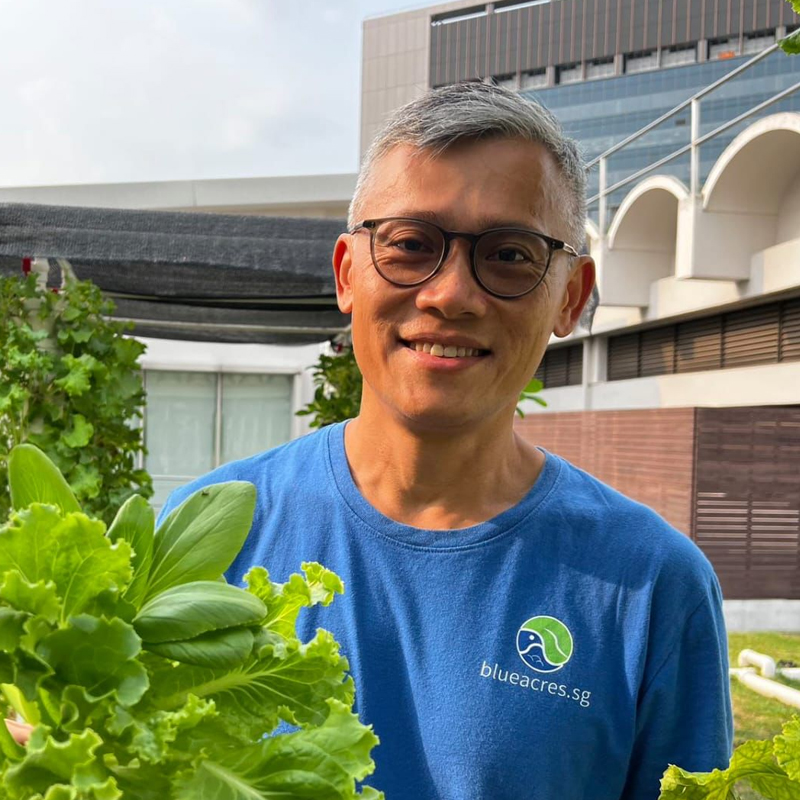
Boon Hian Kee

Co-founder @ BlueAcres
Boon Hian is a multifaceted professional with a background in robotics, factory automation, and nutrition science. As a certified ESG practitioner, he brings over 20 years of experience in IT and telecommunications to the table, having transitioned into the sustainability and renewable energy sector in 2008. In 2019, he co-founded BlueAcres, where he now operates multiple urban farms across Singapore, supplying fresh produce to restaurants, hotels, and hospitals. Boon Hian is dedicated to community engagement, offering free farm tours for the elderly and hosting aquaponics workshops for special interest groups. He is also a named patent applicant and inventor of a vertical farming contraption




